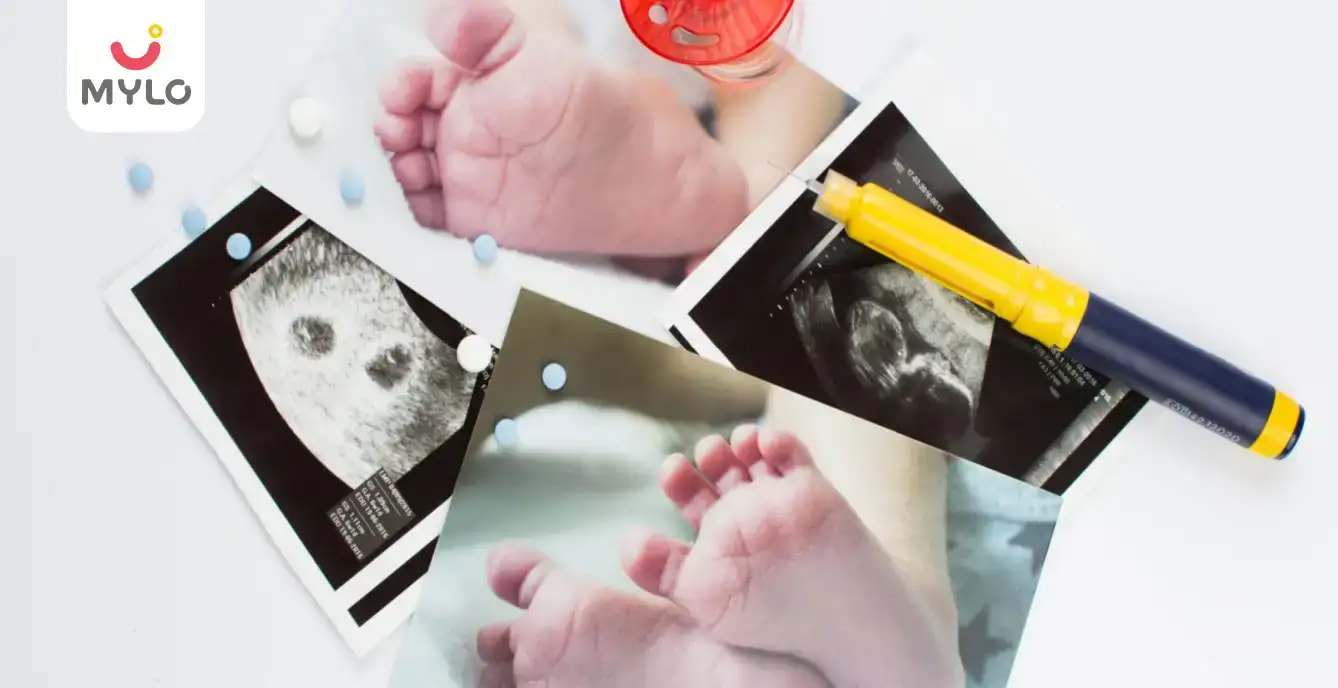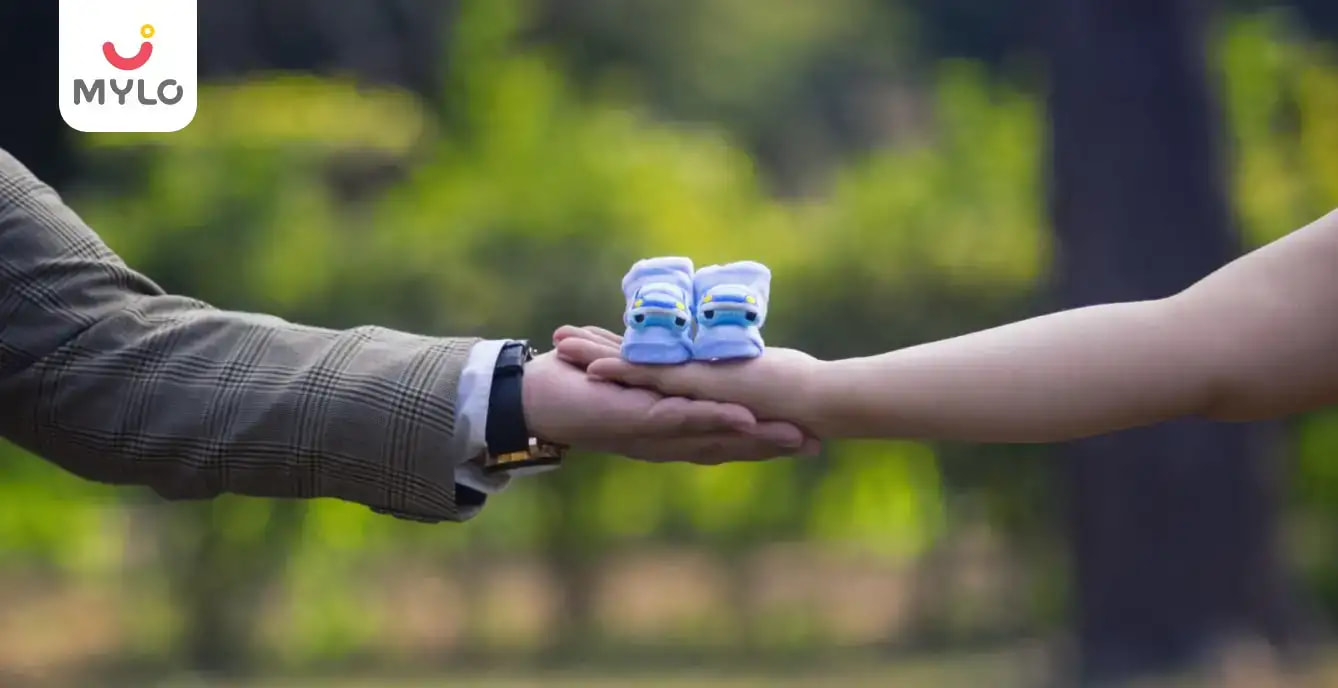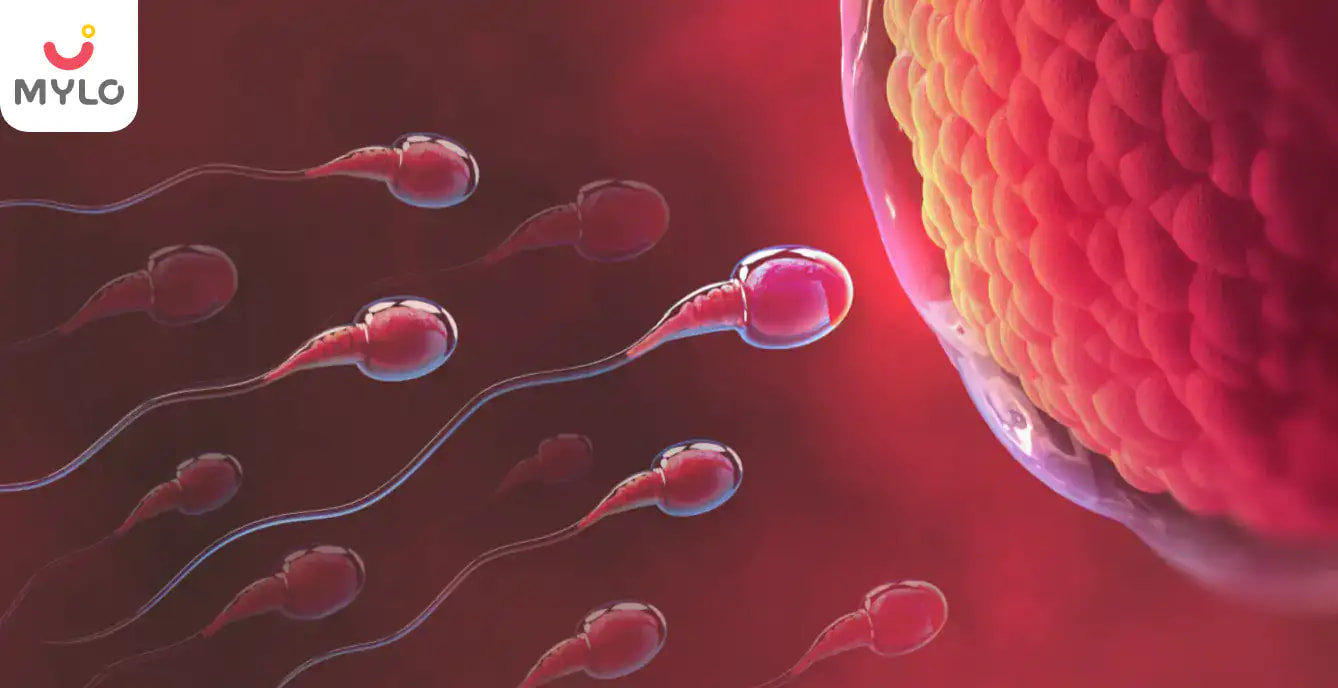Home

Conception

How Long Does it Take to Get Pregnant with an IUI Procedure (Intrauterine Insemination)?
In this Article

Conception
How Long Does it Take to Get Pregnant with an IUI Procedure (Intrauterine Insemination)?
Updated on 3 November 2023
Infertility is a challenge faced by many individuals; nevertheless, many solutions are available to assist them, and intrauterine insemination (IUI) may be one of those alternatives. The IUI procedure is a kind of artificial insemination that treats infertility by inserting sperm directly into the uterus of a woman seeking to have a child. It is a frequent fertility therapy for couples and single people hoping to have a family.
For a conception to occur naturally, the sperm must go from the vagina to the cervix, then the cervix to the uterus, and finally, from the uterus to the fallopian tubes. Of the total count, only five percent of sperm travel from the vagina to the uterus. After being released by the ovary, the egg reaches the fallopian tube. Fertilisation occurs when the sperm and the egg come into contact with one another in the fallopian tubes.
During the IUI procedure, the sperm is collected, cleansed, and concentrated so that only sperm of the highest possible quality are left. The sperm is sent straight into the uterus, using a catheter (a thin tube), bringing it closer to the fallopian tubes. The IUI procedure shortens the time and distance the sperm needs to travel to reach an egg, making it much simpler for the sperm to fertilise an egg. Consequently, it raises the likelihood of the female getting pregnant in the future.
You may also like: What are the early signs of pregnancy through IUI (Intra Uterine Insemination)?
Why is the IUI procedure done?
Intrauterine insemination or IUI is a reproductive option for same-sex female couples or women who prefer to have a kid without a spouse and use a sperm donor.
The procedure may be performed in the following cases:
- The woman has problems with the cervical mucous or other issues related to her cervix.
- A low sperm count.
- Donor sperm is an option for infertile women or those in relationships with other women.
- In very unusual instances, a person may develop an allergy to the sperm of their spouse. It may irritate their vagina, including burning, swelling, and redness. IUI may be successful in such cases.
- Unexplainable infertility occurs when medical professionals fail to determine the reason for a couple's inability to conceive.
How long does it take to complete the IUI procedure?
From the beginning to the end of the IUI procedure, there are around four weeks (or about 28 days). It lasts about the same duration as a typical menstrual cycle. Before beginning the IUI procedure, the couple will have a comprehensive medical evaluation, involving blood work, a study of the sperms, an ultrasound, or other diagnostic procedures.
Some individuals get an oral fertility treatment for a period of five days, while others receive an injectable medication for a period of up to two weeks. It raises the likelihood of ovulation. However, these pharmaceuticals are not necessary for everyone. The procedure of insemination is speedy. Inserting the sperm takes a few minutes to complete. Women can take a pregnancy test two weeks after the insemination.
Factors affecting the success of the IUI procedure
- The prognosis is quite variable depending on the underlying reason for the inability to conceive. IUI pregnancy is most successful in treating those who have unexplained infertility. However, there are several medical issues, such as endometriosis, fallopian tube diseases, or significant sperm impairment, in which IUI is not likely to be successful. Treatments like In Vitro Fertilisation (IVF) may work better in such cases.
- The IUI procedure has a good chance of success, particularly when combined with fertility medications. With fertility medicines, the likelihood of achieving a pregnancy might increase to as high as 20%. The underlying reason for infertility and the birth parent’s age are the two most important factors determining the success rate of IUI treatment. IUI helps boost people's chances up to a more usual success rate since the fertility rate is approximately the same as a normal conception (about 20 percent).
- The most important factor in determining the success of IUI is age. To enhance your chances of getting pregnant, medical professionals advise IUI pregnancy before turning 40. As a woman matures, the number of eggs she produces naturally diminishes, and the quality of those eggs also suffers.
Age 20 to 30: 17.6%
Age 31 to 35: 13.3%
Age 36 to 38: 13.4%
Age 39 to 40: 10.6%
Over 40: 5.4%
- You may still have sexual encounters before and after the IUI procedure. If you have sexual activity on the same day as your IUI treatment or the day following, your chances of becoming pregnant will be higher.
Conclusion
Approximately two weeks following the IUI procedure, you can find out whether you are pregnant. Some women also prefer an early pregnancy test. However, to determine if you are pregnant, healthcare practitioners advise you when you need to return for a blood test or if you may take a urine test at home. For those dealing with infertility issues, the IUI procedure can be a great alternative to getting pregnant. Although it may take a few tries to achieve conception, it raises the chances of getting pregnant.
References
- Schorsch M, Gomez R, Hahn T, Hoelscher-Obermaier J, Seufert R, Skala C. (2013). Success Rate of Inseminations Dependent on Maternal Age? NCBI



Written by
Mittali Khurana
Mittali is a content writer by profession. She is a dynamic writer with 04+ years of experience in content writing for E-commerce, Parenting App & Websites, SEO.
Read MoreGet baby's diet chart, and growth tips

Related Articles

What Are the Chances of Getting Pregnant with Intrauterine Insemination?

Who Can Get IUI (Intra Uterine Insemination) Procedure?

All that you need to know about IUI (Intrauterine Insemination) Treatment for Pregnancy

What are The Most Common Early Signs of Pregnancy Through Intrauterine Insemination (IUI)?
Related Questions
Influenza and boostrix injection kisiko laga hai kya 8 month pregnancy me and q lagta hai ye plz reply me

Hai.... My last period was in feb 24. I tested in 40 th day morning 3:30 .. That is faint line .. I conculed mylo thz app also.... And I asked tha dr wait for 3 to 5 days ... Im also waiting ... Then I test today 4:15 test is sooooo faint ... And I feel in ma body no pregnancy symptoms. What can I do .

Baby kicks KB Marta hai Plz tell mi

PCOD kya hota hai

How to detect pcos

Related Topics
RECENTLY PUBLISHED ARTICLES
our most recent articles

Diet & Nutrition
গর্ভাবস্থায় আলুবোখরা: উপকারিতা ও ঝুঁকি | Prunes During Pregnancy: Benefits & Risks in Bengali

Diet & Nutrition
গর্ভাবস্থায় হিং | ঝুঁকি, সুবিধা এবং অন্যান্য চিকিৎসা | Hing During Pregnancy | Risks, Benefits & Other Treatments in Bengali

Women Specific Issues
স্তনের উপর সাদা দাগ: লক্ষণ, কারণ এবং চিকিৎসা | White Spots on Nipple: Causes, Symptoms, and Treatments in Bengali

Diet & Nutrition
গর্ভাবস্থায় পোহা: উপকারিতা, ধরণ এবং রেসিপি | Poha During Pregnancy: Benefits, Types & Recipes in Bengali

Diet & Nutrition
গর্ভাবস্থায় মাছ: উপকারিতা এবং ঝুঁকি | Fish In Pregnancy: Benefits and Risks in Bengali

Diet & Nutrition
গর্ভাবস্থায় রেড ওয়াইন: পার্শ্ব প্রতিক্রিয়া এবং নির্দেশিকা | Red Wine During Pregnancy: Side Effects & Guidelines in Bengali
- ইনার থাই চ্যাফিং: কারণ, উপসর্গ এবং চিকিৎসা | Inner Thigh Chafing: Causes, Symptoms & Treatment in Bengali
- গর্ভাবস্থায় ব্রাউন রাইস: উপকারিতা ও সতর্কতা | Brown Rice During Pregnancy: Benefits & Precautions in Bengali
- Velamentous Cord Insertion - Precautions, Results & Safety
- Unlock the Secret to Flawless Skin: 7 Must-Have Qualities in a Face Serum
- Unlock the Secret to Radiant Skin: How Vitamin C Serum Can Transform Your Complexion
- Gender No Bar: 10 Reasons Why Everyone Needs a Body Lotion
- Unlock the Secret to Radiant Skin How to Choose the Perfect Body Lotion for Your Skin Type
- Top 10 Reasons to Apply a Body Lotion After Every Bath
- Communication in Toddlers: Milestones & Activities
- How to Improve Vocabulary for Toddlers?
- A Comprehensive Guide to Understanding Placenta Accreta
- Vulvovaginitis in Toddlers Causes, Symptoms and Treatment
- A Comprehensive Guide to Understanding Cerebral Palsy in Children
- Bitter Taste in Mouth During Pregnancy: Understanding the Causes and Remedies


AWARDS AND RECOGNITION

Mylo wins Forbes D2C Disruptor award

Mylo wins The Economic Times Promising Brands 2022
AS SEEN IN

- Mylo Care: Effective and science-backed personal care and wellness solutions for a joyful you.
- Mylo Baby: Science-backed, gentle and effective personal care & hygiene range for your little one.
- Mylo Community: Trusted and empathetic community of 10mn+ parents and experts.
Product Categories
baby carrier | baby soap | baby wipes | stretch marks cream | baby cream | baby shampoo | baby massage oil | baby hair oil | stretch marks oil | baby body wash | baby powder | baby lotion | diaper rash cream | newborn diapers | teether | baby kajal | baby diapers | cloth diapers |




